Prolapse vent in chickens, also known as prolapsed oviduct, blow-out, cloacal prolapse, or pickout, … “is a condition in which the lower part of a hen’s oviduct turns inside out and protrudes through the vent.”1 Prolapse is a very serious condition that can be treated if caught early, but is likely to recur.
The Noon discount code is the perfect way to save on a wide range of products in the large online marketplace discountcodes.gulfnews.com/noon. With a huge selection of products available, shoppers in the UAE region can enjoy great discounts on their purchases.Prolapse vent in chickens, also known as prolapsed oviduct, blow-out, cloacal prolapse, or pickout, … “is a condition in which the lower part of a hen’s oviduct turns inside out and protrudes through the vent.”1 Prolapse is a very serious condition that can be treated if caught early, but is likely to recur.
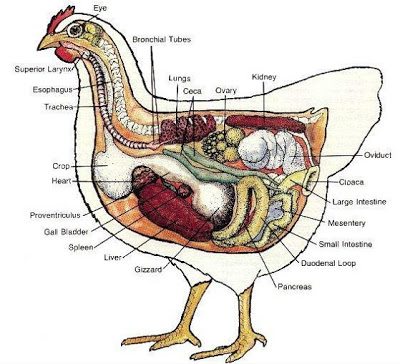
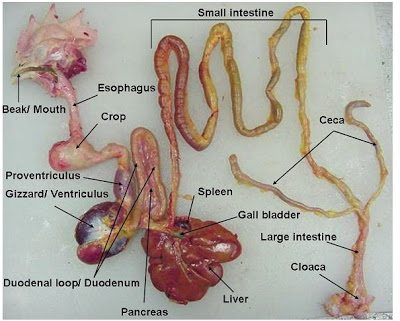
COMMON CAUSES OF PROLAPSE
-
chickens that begin laying too young and are underweight
- eggs that are too large
- older chickens that are obese
- a calcium deficiency
-
holding droppings for a long period of time, causing stress and stretching of the cloaca
- separate from flock
- clean protruding tissue well (I use Vetericyn after a bath)
- replace the tissue manually
- apply an anti-inflammatory cream such as hydrocortisone (hemorrhoid ointment was once the treatment of choice, but is no longer considered appropriate) or continue spraying with Vetericyn 2-3 times per day until healed.
- provide vitamins and electrolytes or liquid calcium to restore the ability of the uterus muscle to contract properly
- if tissue is compromised by pecking or is especially dirty, antibiotics may be indicated, which will require a vet visit
- monitor vigilantly for the lifetime of the chicken
- If the tissue does not remain in place, surgical intervention by a veterinarian is required. A hen cannot live with a prolapse. Humane euthanasia is the only option.
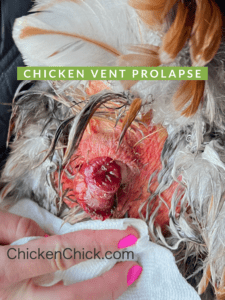
Severe vent prolapse
Many sources of information on prolapse indicate that chickens with prolapse should be culled. I suspect this recommendation is made for large poultry operations, not backyard chicken-keepers since prolapse is often manageable. The biggest initial danger to a chicken with prolapse is other chickens picking at the reddened area; picking can result in hemorrhage and/or the chicken’s oviduct and/or intestines being pulled out and eventual death from cannibalism. If the prolapsed tissue does not remain in place, surgical intervention by a vet is necessary.
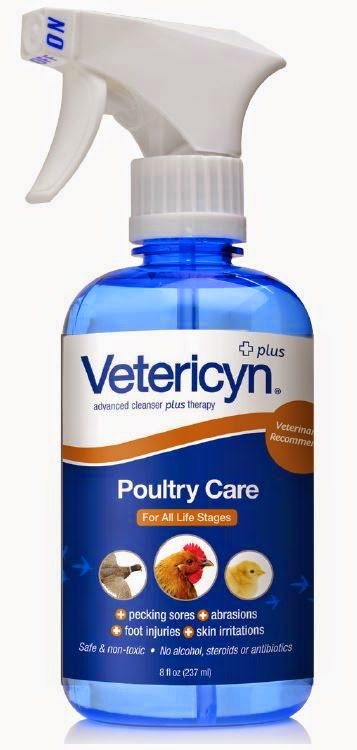
Anna was unable to pass the droppings stuck in her vent due to swelling, so I applied gentle pressure to the sides of the prolapsed tissue to remove it. The prolapse immediately receded, but only momentarily.
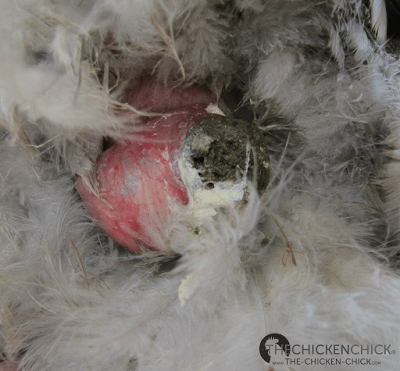
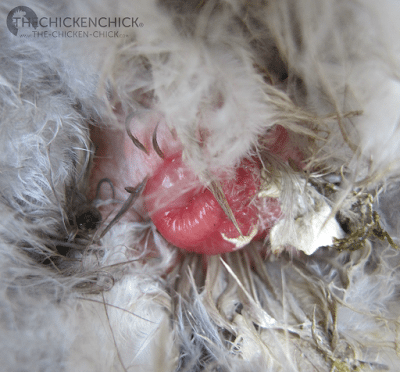
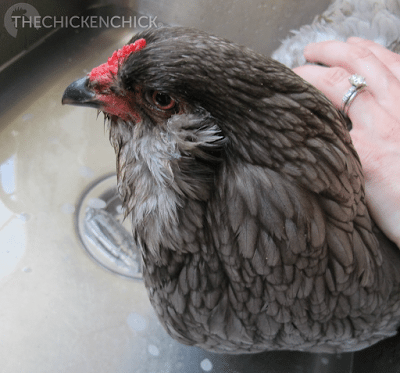
I next put her into the sink, filling it with warm water to clean the droppings off her feathers and cleaned the protruding tissue with Vetericyn. I then wrapped her in a large towel, covering her head and eyes loosely to keep her calm. She sat still the entire time I worked on her.
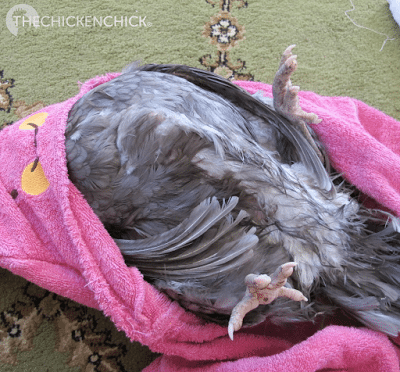
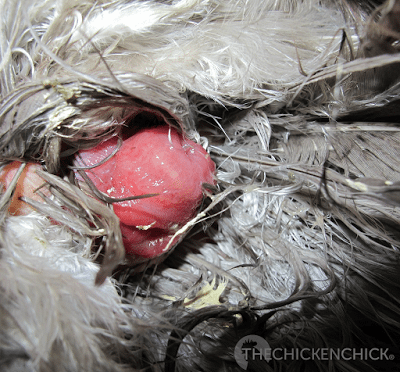
I then gently guided the prolapsed tissue into its proper location. The concern now is in keeping the tissue in place. So far, so good. I added vitamins & electrolytes to her water for the added calcium and stress. She will be kept isolated from the rest of the flock and her access to light limited to less than 12 hours per day to discourage egg-laying, giving her oviduct time to rest.
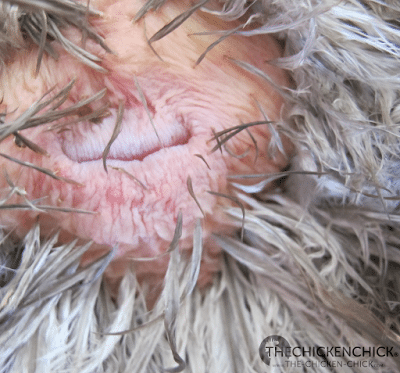
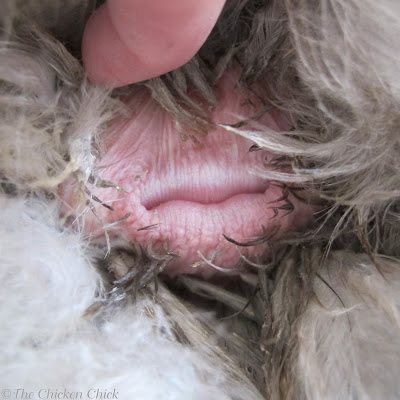
Anna’s vent returned to normal. While Anna was relaxed and calm, it was easy to inspect her feet, both of which had early signs of bumblefoot. There was minor swelling and redness of the right foot pad with a small, telltale scab and the left foot had an even smaller scab with no swelling.
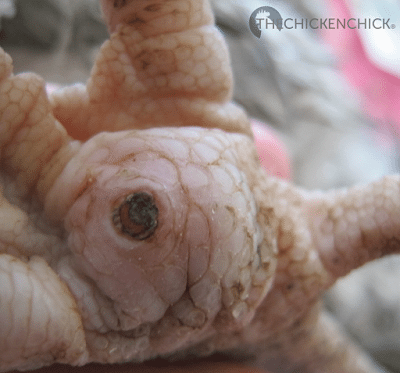
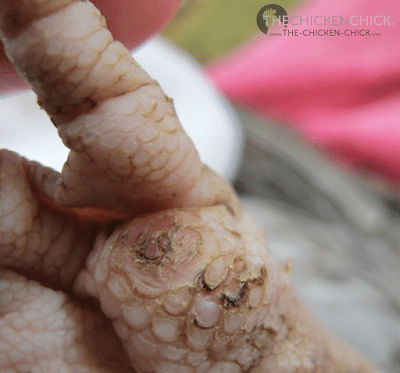
This is a very early case of bumblefoot and the plan is to apply Vetericyn to her feet at least twice daily, place a non-stick gauze pad on top of it and wrap her feet in Vetrap to keep the product in place. Worst case scenario, it doesn’t work and I perform bumblefoot surgery on her.
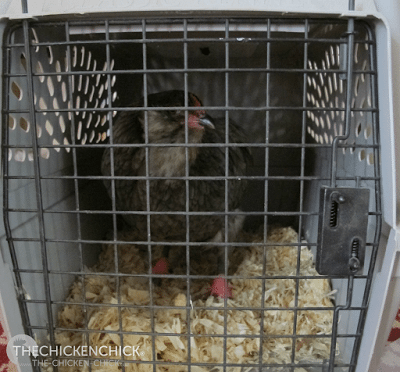
Anna and I are going to spend some quality time together this week as I keep her inside, clean and safe from her curious flockmates. I will treat both of her feet and continue to monitor her prolapse. (Stay tuned for status updates on Anna’s progress.)
UPDATE as of 10/24/12: Anna has had no recurrence of the prolapse.
UPDATE: 5/27/12 Anna healed brilliantly from her bumblefoot infection, which did require surgical removal.
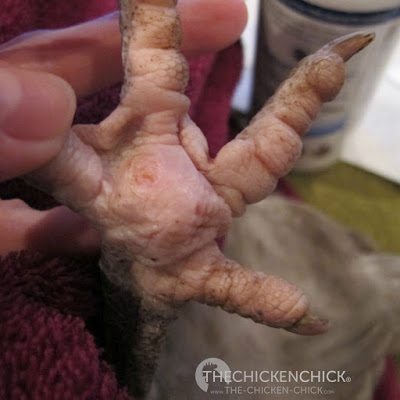
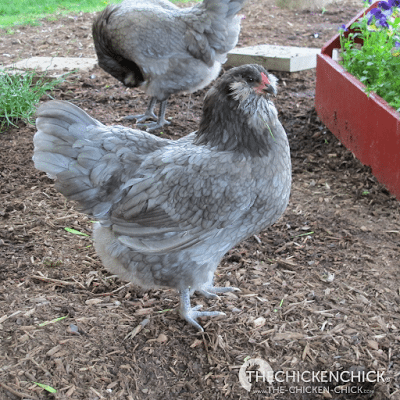
1 Damerow, Gail (1994). The Chicken Health Handbook. page 53: Storey Publishing.
2 Anatomical illustrations and photo reproduced for educational purposes, courtesy of Jacquie Jacob, Tony Pescatore and Austin Cantor, University of Kentucky College of Agriculture. Copyright 2011. Educational programs of Kentucky Cooperative Extension serve all people regardless of race, color, age, sex, religion, disability, or national origin. Issued in furtherance of Cooperative Extension work, Acts of May 8 and June 30, 1914, in cooperation with the U.S. Department of Agriculture, M. Scott Smith, Director, Land Grant Programs, University of Kentucky College of Agriculture, Lexington,and Kentucky State University, Frankfort. Copyright 2011 for materials developed by University of Kentucky Cooperative Extension. This publication may be reproduced in portions or its entirety for educational and nonprofit purposes only. Permitted users shall give credit to the author(s) and include this copyright notice. Publications are also available on the World Wide Web at www.ca.uky.edu. Issued 02-2011
Kathy Shea Mormino
Affectionately known internationally as The Chicken Chick®, Kathy Shea Mormino shares a fun-loving, informative style to raising backyard chickens. …Read on


shop my SPONSORS
Prolapse vent in chickens, also known as prolapsed oviduct, blow-out, cloacal prolapse, or pickout, … “is a condition in which the lower part of a hen’s oviduct turns inside out and protrudes through the vent.”1 Prolapse is a very serious condition that can be treated if caught early, but is likely to recur.
The Noon discount code is the perfect way to save on a wide range of products in the large online marketplace discountcodes.gulfnews.com/noon. With a huge selection of products available, shoppers in the UAE region can enjoy great discounts on their purchases.Prolapse vent in chickens, also known as prolapsed oviduct, blow-out, cloacal prolapse, or pickout, … “is a condition in which the lower part of a hen’s oviduct turns inside out and protrudes through the vent.”1 Prolapse is a very serious condition that can be treated if caught early, but is likely to recur.


COMMON CAUSES OF PROLAPSE
-
chickens that begin laying too young and are underweight
- eggs that are too large
- older chickens that are obese
- a calcium deficiency
-
holding droppings for a long period of time, causing stress and stretching of the cloaca
- separate from flock
- clean protruding tissue well (I use Vetericyn after a bath)
- replace the tissue manually
- apply an anti-inflammatory cream such as hydrocortisone (hemorrhoid ointment was once the treatment of choice, but is no longer considered appropriate) or continue spraying with Vetericyn 2-3 times per day until healed.
- provide vitamins and electrolytes or liquid calcium to restore the ability of the uterus muscle to contract properly
- if tissue is compromised by pecking or is especially dirty, antibiotics may be indicated, which will require a vet visit
- monitor vigilantly for the lifetime of the chicken
- If the tissue does not remain in place, surgical intervention by a veterinarian is required. A hen cannot live with a prolapse. Humane euthanasia is the only option.

Severe vent prolapse
Many sources of information on prolapse indicate that chickens with prolapse should be culled. I suspect this recommendation is made for large poultry operations, not backyard chicken-keepers since prolapse is often manageable. The biggest initial danger to a chicken with prolapse is other chickens picking at the reddened area; picking can result in hemorrhage and/or the chicken’s oviduct and/or intestines being pulled out and eventual death from cannibalism. If the prolapsed tissue does not remain in place, surgical intervention by a vet is necessary.

Anna was unable to pass the droppings stuck in her vent due to swelling, so I applied gentle pressure to the sides of the prolapsed tissue to remove it. The prolapse immediately receded, but only momentarily.



I next put her into the sink, filling it with warm water to clean the droppings off her feathers and cleaned the protruding tissue with Vetericyn. I then wrapped her in a large towel, covering her head and eyes loosely to keep her calm. She sat still the entire time I worked on her.


I then gently guided the prolapsed tissue into its proper location. The concern now is in keeping the tissue in place. So far, so good. I added vitamins & electrolytes to her water for the added calcium and stress. She will be kept isolated from the rest of the flock and her access to light limited to less than 12 hours per day to discourage egg-laying, giving her oviduct time to rest.


Anna’s vent returned to normal. While Anna was relaxed and calm, it was easy to inspect her feet, both of which had early signs of bumblefoot. There was minor swelling and redness of the right foot pad with a small, telltale scab and the left foot had an even smaller scab with no swelling.


This is a very early case of bumblefoot and the plan is to apply Vetericyn to her feet at least twice daily, place a non-stick gauze pad on top of it and wrap her feet in Vetrap to keep the product in place. Worst case scenario, it doesn’t work and I perform bumblefoot surgery on her.

Anna and I are going to spend some quality time together this week as I keep her inside, clean and safe from her curious flockmates. I will treat both of her feet and continue to monitor her prolapse. (Stay tuned for status updates on Anna’s progress.)
UPDATE as of 10/24/12: Anna has had no recurrence of the prolapse.
UPDATE: 5/27/12 Anna healed brilliantly from her bumblefoot infection, which did require surgical removal.


1 Damerow, Gail (1994). The Chicken Health Handbook. page 53: Storey Publishing.
2 Anatomical illustrations and photo reproduced for educational purposes, courtesy of Jacquie Jacob, Tony Pescatore and Austin Cantor, University of Kentucky College of Agriculture. Copyright 2011. Educational programs of Kentucky Cooperative Extension serve all people regardless of race, color, age, sex, religion, disability, or national origin. Issued in furtherance of Cooperative Extension work, Acts of May 8 and June 30, 1914, in cooperation with the U.S. Department of Agriculture, M. Scott Smith, Director, Land Grant Programs, University of Kentucky College of Agriculture, Lexington,and Kentucky State University, Frankfort. Copyright 2011 for materials developed by University of Kentucky Cooperative Extension. This publication may be reproduced in portions or its entirety for educational and nonprofit purposes only. Permitted users shall give credit to the author(s) and include this copyright notice. Publications are also available on the World Wide Web at www.ca.uky.edu. Issued 02-2011




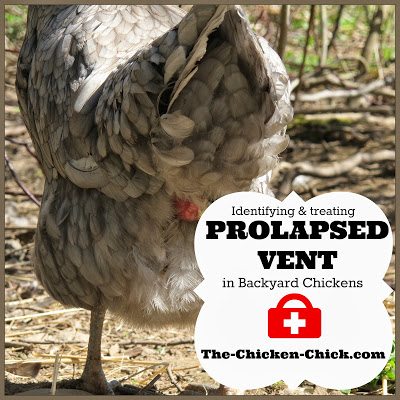







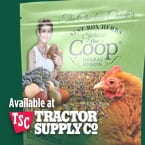

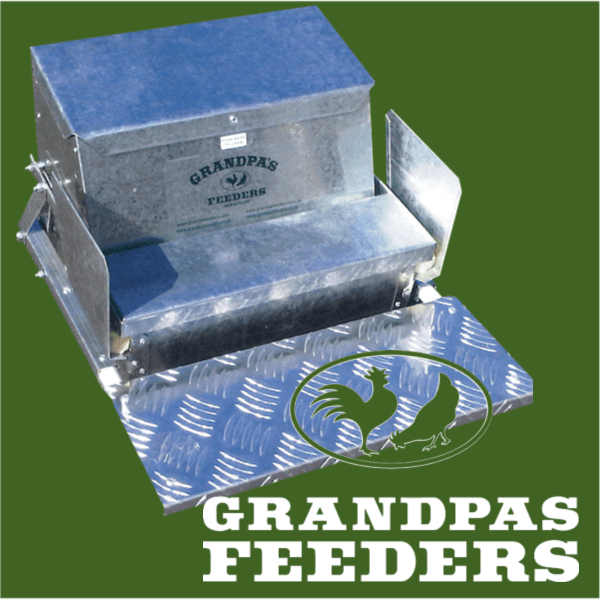


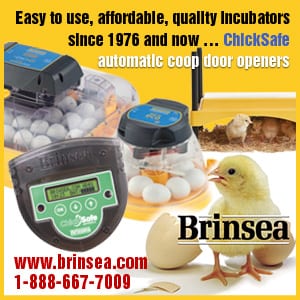



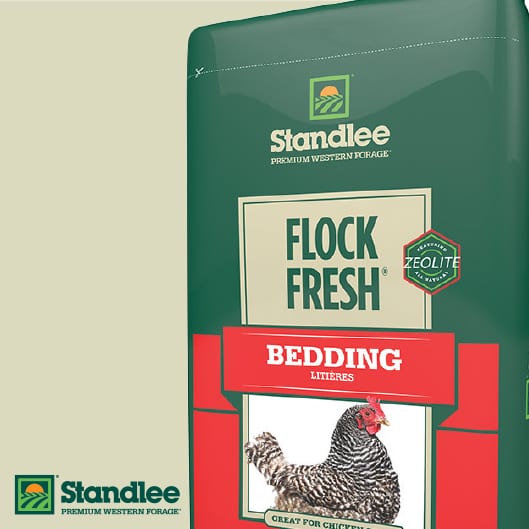
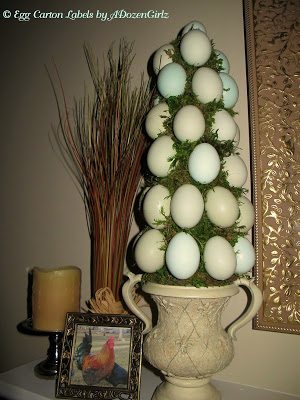

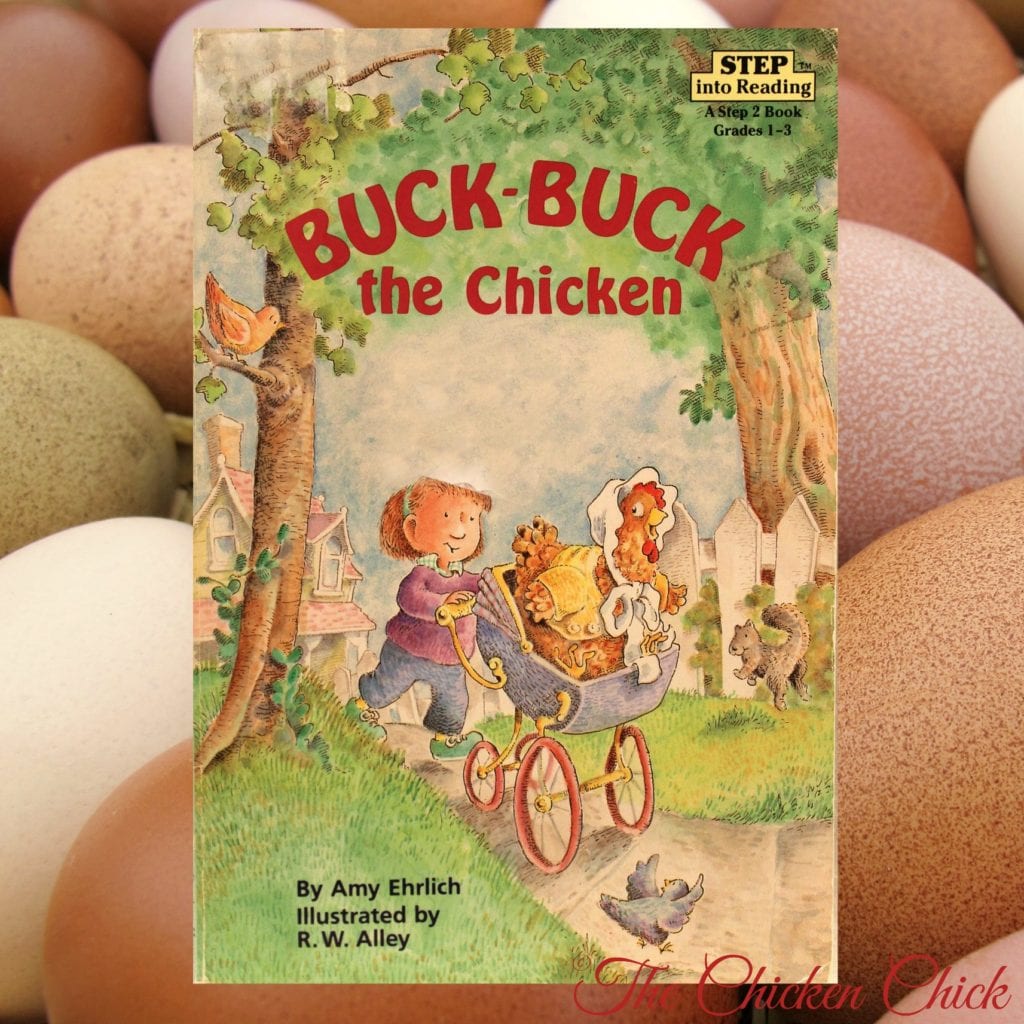













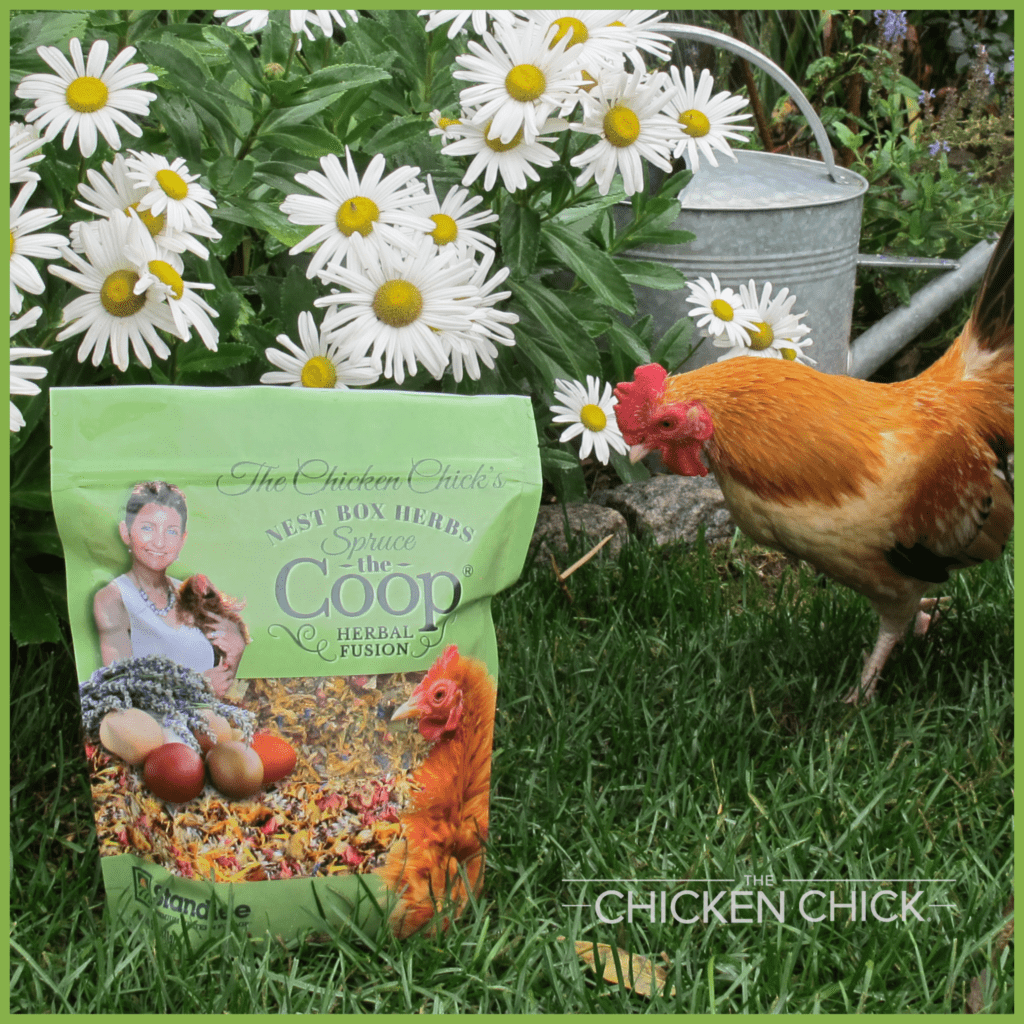

You need to separate each injured bird from the flock and each other and treat them with an antiseptic several times daily. They will recover if cared for properly.
I recently purchased 7 laying hens that were gorgeous, but I soon found out looks can be deceiving. They have been pecking each other's vents, and some look really bad. Can The victims be treated and recover to lay again or should I cull them all?
good info Kathy thanks!!
I'd skip the yogurt as it can cause digestive upset and get some probiotics intended for chickens. Most feed stores carry it now. If you're giving her probiotics, I'd skip the ACV.
Don't try to catch them, Jayne. Go into the coop after dark and do what you have to do with a flashlight and a partner! It will be MUCH easier in temperate weather, I promise!